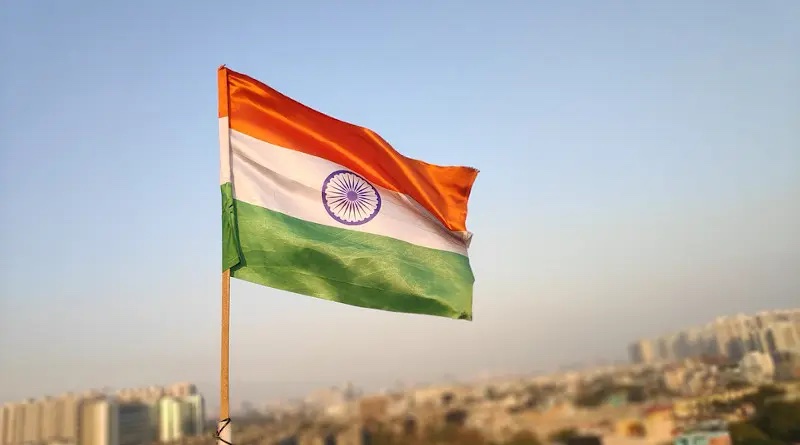BJP-Led India: A Partner In Question – OpEd
By Dr. Sahibzada Muhammad Usman
The Bharatiya Janata Party (BJP), since coming to power in India, has pursued an aggressive foreign policy and intelligence strategy. Recent incidents involving Indian nationals and government agents in espionage and interference in other countries’ affairs have brought this approach into the limelight. This article aims to scrutinize these incidents and evaluate their impact on India’s diplomatic relations, particularly under the BJP’s rule.
On October 24, 2023, Qatar’s action against eight former Indian naval officers accused of sharing classified submarine information with Israel marked a significant breach of trust. This incident not only exposed India’s espionage activities but also highlighted the BJP-led government’s disregard for maintaining confidentiality with strategic allies.
Jagdish Singh’s arrest in Canada and the trial of Manmohan Singh and Kanwal Jit Singh in Germany for spying charges illustrate India’s extensive undercover operations abroad. These incidents raise questions about the BJP government’s methods and objectives in gathering intelligence in foreign countries, especially targeting specific communities like the Sikh and Kashmiri diasporas.
The 2021 revelation by Australian state police implicating the BJP in vandalizing Hindu temples in Australia is particularly disturbing. This act, seemingly aimed at creating fear and division among Hindu Australians to garner political support, reflects a manipulation of religious sentiments for political gains, even beyond India’s borders.
The assassination of Hardeep Singh Nijar in Canada exemplifies the extreme measures the Indian government is reportedly willing to take. This has caused a significant diplomatic standoff between India and Canada, showcasing how such actions can jeopardize international relations. The poisoning of Sikh leader Avtar Singh Khanda in Birmingham, and the alleged involvement of the Indian government in the killing of Sikh youth on foreign soil, are serious accusations. They not only raise human rights concerns but also point towards a pattern of targeting political dissidents abroad.
These incidents have undoubtedly strained India’s relations with several countries. The espionage activities and aggressive tactics employed abroad under the BJP’s leadership have led to a trust deficit with allies and neighbors. This undermines India’s global standing and could hinder its diplomatic and strategic objectives.
Domestically, these actions reflect the BJP’s hardline stance on national security and its willingness to extend its reach beyond national borders. Externally, they signal a more assertive and interventionist foreign policy that could isolate India in the international community. The ethical implications of these actions are significant. Espionage, meddling in foreign affairs, and target killings raise serious legal and moral questions. They also bring into focus the need for a more transparent and responsible approach to international relations and intelligence operations.
Furthermore, India’s strategic maneuvers, its relationships with the US and Russia, and the internal value conflicts that impact its international standing. India’s strategic positioning between the US and Russia is a classic example of realpolitik. The civil nuclear deal and the rebranding of the US Pacific Command as the Indo-Pacific Command underscore the US’s intention to bolster India as a counterweight to China. However, India’s recent military procurements from the US do not necessarily indicate a shift in allegiance but are seen more as essential upgrades. The Ukraine conflict has put India’s diplomatic balancing act in the spotlight. Despite the global pressure and the West’s unified stance against Russia, India has maintained a neutral position, reflecting its prioritization of economic interests over strategic alliances. In spite of the regional rhetoric against China, India continues to expand its trade relations with Beijing. This approach demonstrates India’s pragmatic policy of separating economic interests from geopolitical rivalries. India’s defense relationship with Russia, with Russian hardware constituting a significant portion of its armory, has not waned. Joint ventures like the Sukhoi Su-57 and the procurement of the S-400 system, alongside the import of Russian oil, indicate a deep-rooted strategic partnership that transcends immediate geopolitical shifts.
The BJP-led government’s value system, particularly its Hindutva ideology, often clashes with Western democratic ideals. Instances of violence against minorities and the undermining of secular institutions in India are in stark contrast to the principles espoused by the US and its allies. The rise of Hindu nationalism has led to increased discrimination against Muslims and Christians, viewed by many as alien to the Indian ethos. This internal social dynamic complicates India’s international image, especially with Western nations that prioritize human rights and religious freedoms. Reports and documentaries by international entities like Hindenburg Research, BBC, Freedom House, and the US State Department, highlighting financial irregularities and human rights violations, are perceived by India as coercive tactics by the West. This perception further widens the ideological divide between India and Western nations.
The BJP-led India’s engagement in espionage and meddling in foreign countries represents a complex challenge to its image as a reliable partner in the international arena. These actions, ranging from espionage to alleged target killings, not only harm India’s diplomatic relations but also raise ethical and legal concerns. As India continues to assert its place on the global stage, it is imperative for the BJP government to reassess its strategies and ensure they align with international norms and the country’s long-term diplomatic interests. The future of India’s foreign policy and international relations hinges on striking a balance between national security interests and maintaining healthy, trustworthy relationships with other nations.

